
Having a successful agency-client relationship is crucial for progress in your agency. A positive client-agency relationship increases the likelihood of client retention, and keeping clients over the long term is often more cost-effective than acquiring new ones.
Moreover, a strong client-agency relationship creates client advocates who speak positively about the agency. This article explores the meaning of agency-client relationships and shares the top strategies for building successful agency-client relationships.
We've also approached several digital agency founders to give their thoughts on how to build a strong agency-client relationship. I'd like to give special thanks to the following founders for their valuable insights and for making this article possible:
- Zac Spencer, Owner @ Crave Media, United States
- Jennifer DeRosa, Owner @ Toto SEO, United States
- Alan Muther, Founder @ Ardoz Digital, United States
- Jonathan Kelly, SEO Manager @ 1st on the List, Canada
- Magee Clegg, Founder @ Cleartail Marketing, United States
- Vinika Garg, COO @ Webomaze, Australia
- Tom Jauncey, Founder @ Nautilus Marketing, United Kingdom

What is Meant with Agency-Client Relationship?
An agency-client relationship is like a partnership between two entities: the agency, which is a company providing services like marketing, advertising, or public relations, and the client, which is the company or individual seeking those services.
For instance, when an advertising agency partners with a client, a dynamic collaboration unfolds. In this creative alliance, the agency and the client join forces to craft and execute compelling marketing campaigns.
The agency, acting as the creative engine, dives into understanding the client's goals, envisioning catchy slogans, creating visually appealing designs, and impactful media placements.
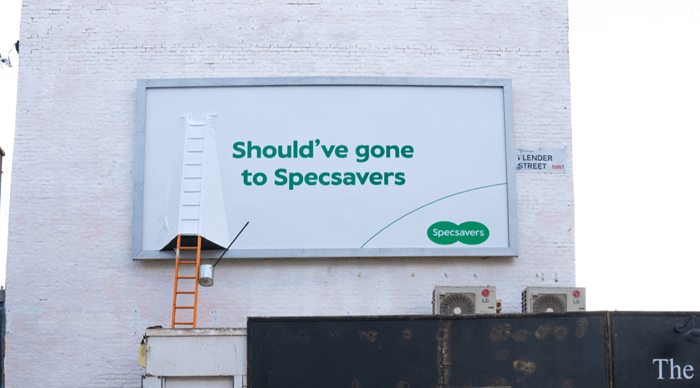
Image source: Orchard
This partnership goes beyond a one-time project; it's an ongoing relationship. As the client's business evolves, the agency becomes a trusted advisor, adapting strategies and creatively steering the brand through the dynamic landscape of marketing.
Remember, success is not just a win for the client; it's a shared victory, a testament to the effectiveness of a partnership where the agency's creativity and skills propel the client's brand to new heights.
Why is it Important to Have a Good Agency-Client Relationship?
Maintaining a strong agency-client relationship is crucial for several compelling reasons:
Fostering Seamless Collaboration
A good partnership between a company and its marketing agency is like a team working together smoothly. When everyone talks openly, shares the same goals, and works together, it helps make marketing plans and projects successful.
It's like a sports team where players communicate well, have the same aim, and play together to win the game.
Deepening Understanding for Tailored Strategies
In a solid partnership, the marketing team goes beyond just knowing the basics of the client's business. They dive deep into understanding every aspect, gaining a comprehensive insight into the client's industry, grasping the subtle nuances that make it unique, and fully comprehending the specific goals and objectives the client aims to achieve.

Take the time to fully comprehend your client's business objectives. The more you understand their goals, the better you can tailor your strategies to meet their needs. - Tom Jauncey, Nautilus Marketing
This depth of understanding serves as the foundation for crafting tailored marketing strategies that precisely align with the client's distinctive needs.
Building Trust for Dependable Partnerships
Trust forms the solid ground on which a partnership stands strong. When trust flourishes between the agency and the client, it creates a reliable foundation.
Clients can trust that the agency will follow through on its promises, and, in return, the agency can count on the client's backing and cooperation. It's like a sturdy bridge built on trust, allowing both parties to confidently move forward, knowing they can depend on each other.
Navigating Change with Agility
A positive agency-client relationship equips both parties with the agility to navigate changes effectively.
Whether responding to market dynamics or unforeseen challenges, a resilient partnership enables quick and adaptive responses, ensuring the continuity of successful campaigns.
Strategic Resource Allocation for Efficiency
Understanding the client's needs and goals allows the agency to strategically allocate resources for maximum efficiency.
This involves careful planning to ensure that the agency can fulfill its commitments without overextending its capabilities, leading to smoother project execution.
Cultivating Long-Term Value Through Insightful Partnerships
Beyond individual projects, a lasting agency-client relationship cultivates long-term value.
Agencies that invest time in understanding their clients can consistently provide high-value services. This enduring partnership contributes to sustained success, with both parties benefiting from insights gained over time.
What Makes a Good Agency-Client Relationship?
Establishing a robust relationship between an agency and a client is vital for realizing positive results in collaborative projects. The following are essential elements that make a good agency-client relationship:
Effective Budget Management
A good agency-client relationship involves efficient handling of budgets. Both parties work collaboratively to ensure that resources are allocated effectively, maximizing the impact of marketing efforts.
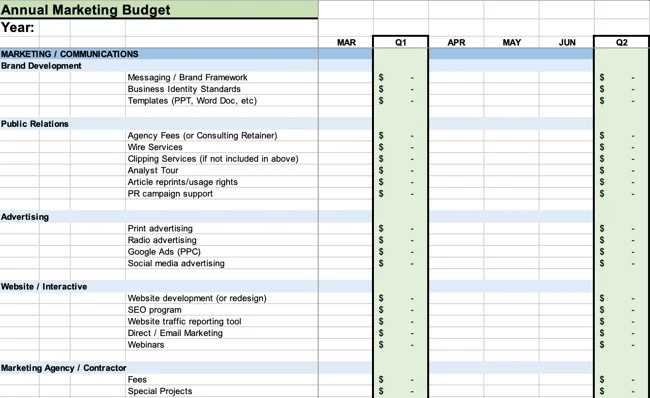
Image source: Hubspot
Strategic Planning and Execution
The relationship focuses on strategic planning and meticulous execution. Clear goals, timelines, and project plans should be established, to ensure that campaigns are executed with precision and alignment with overarching objectives.
Timely and Transparent Reporting
Timely and transparent reporting is a key aspect of a good agency-client relationship. The agency provides regular updates and comprehensive reports on campaign performance, fostering transparency and enabling data-driven decision-making.
Risk Management and Contingency Planning
Both the agency and the client engage in risk management and contingency planning. Identifying potential challenges and having robust contingency plans in place contribute to a proactive and resilient partnership.
Legal Compliance and Ethical Standards
Adherence to legal compliance and ethical standards is non-negotiable. The agency operates within legal frameworks and upholds ethical standards in all activities, ensuring a trustworthy and compliant working relationship.
Efficient Project Workflow
A streamlined project workflow characterizes the relationship. Clear roles, responsibilities, and processes are established to avoid bottlenecks and ensure that projects progress efficiently from conception to completion.
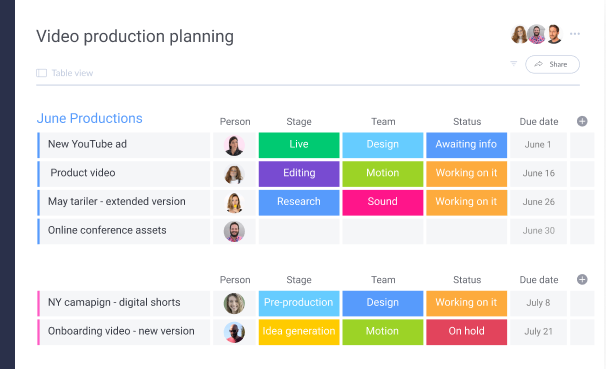
Image source: Monday
Client Education and Knowledge Transfer
The agency actively engages in client education and knowledge transfer. Sharing industry insights, market trends, and emerging technologies ensures that the client is well-informed and can make informed decisions regarding marketing strategies.
Reasons for Bad Agency-Client Relationships
Here are the top reasons for poor agency-client relationships:
Communication Breakdown
Effective communication is the backbone of successful agency-client relationships. When communication is subpar, it becomes a primary catalyst for strain.
Inadequate transparency, characterized by a lack of clarity or openness, contributes to misunderstandings between the agency and the client.
Failure to express expectations and concerns can create a void, where assumptions fill the gaps, eroding the foundation of collaboration. This breakdown often leads to frustration, confusion, and a loss of trust.
Misaligned Expectations
Unclear definitions of roles, responsibilities, and project outcomes are a few reasons for dissatisfaction. When expectations are not clearly defined and aligned from the outset, it sets the stage for divergent paths.
Hence, the agency and the client may operate with different assumptions about each other's contributions, hindering the smooth progress of the project.
Misaligned expectations is one of the bigger reasons that can result in disputes, as both parties discover discrepancies in their understanding of the project's direction and goals.
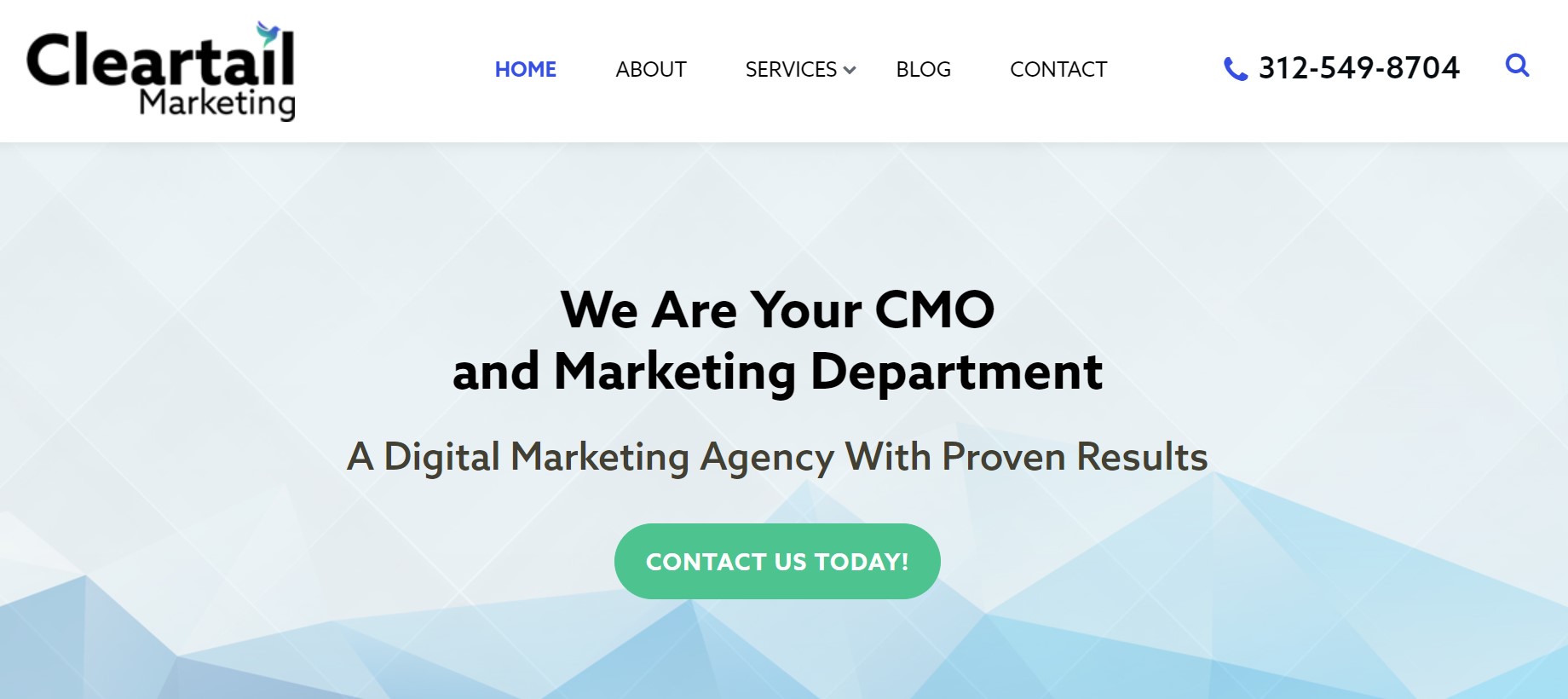
Magee Clegg, founder of Cleartail Marketing, a digital agency based in Illinois, argues that setting realistic expectations from the onset is crucial.
We make sure that our clients understand SEO is a long-term strategy and results may not be instant.
Breach of Trust
Trust is a cornerstone in any successful partnership, and its erosion can quickly deteriorate the agency-client relationship. Perceptions of dishonesty, incompetence, or a breach of trust, whether real or perceived, create a toxic environment.
Trust erosion impacts not only the current project but also future collaborations. It leads to a breakdown in communication, reluctance to share critical information, and an overall negative atmosphere that hampers the collaborative spirit necessary for agency-client relationship success.
Feedback Deficiency
Insufficient or poorly communicated feedback stifles progress and adaptation.
Feedback is crucial for improvement, and when it's lacking, the agency may struggle to understand the client's expectations and preferences.
A dearth of constructive criticism or guidance prevents necessary adjustments, hindering the overall quality of the work produced. This deficiency can result in a stagnant project, where necessary improvements are neglected.
Scope Creep Challenges
Expanding project scope without clear communication or agreement strains resources and poses significant challenges. Frequent scope changes without proper communication can lead to dissatisfaction, as the initial project parameters are continuously altered.
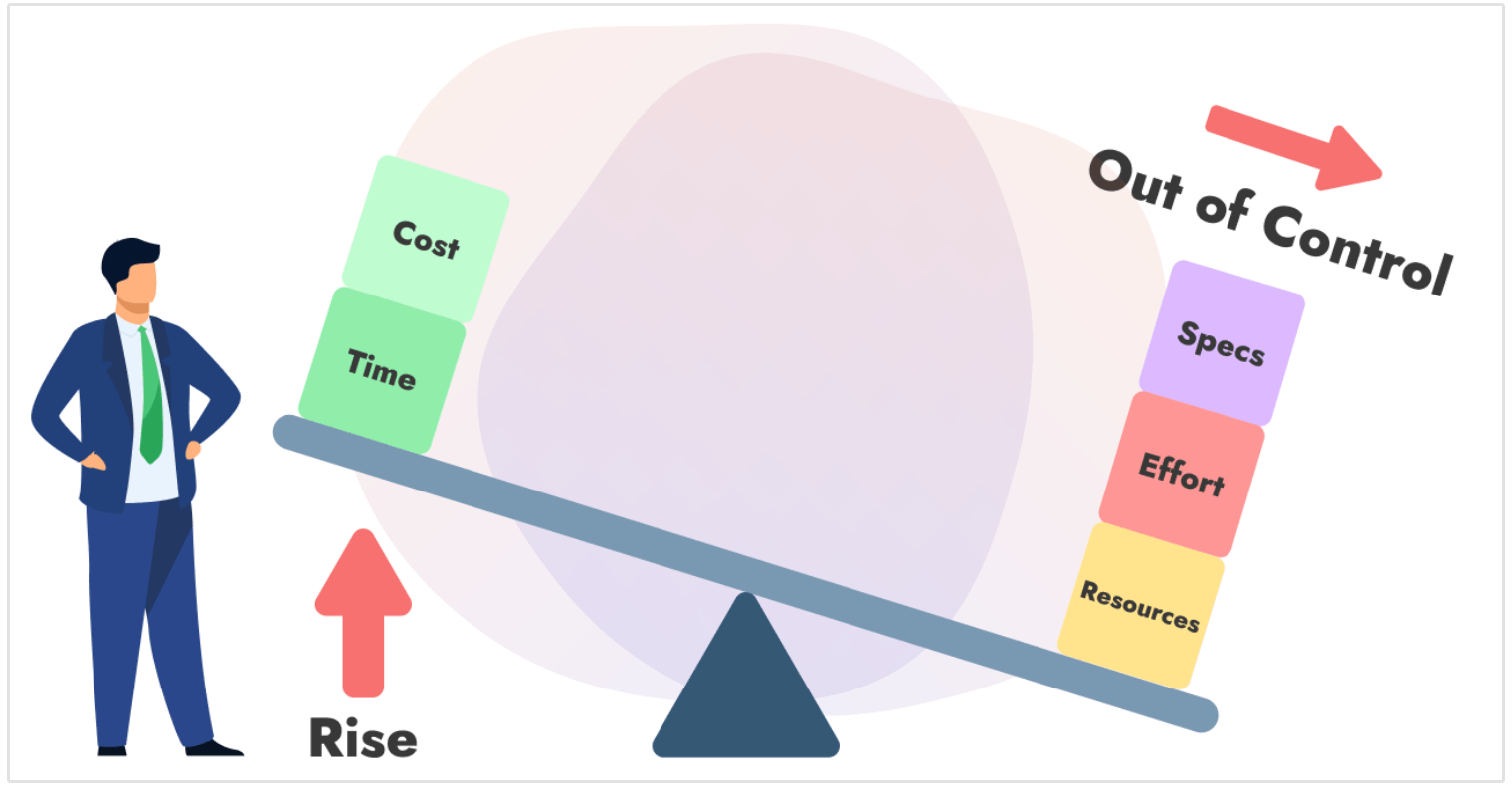
Image source: Kissflow
The agency may find it difficult to manage resources effectively, and the client may feel that the project is not progressing as initially envisioned. To avoid this, make expectations clear in a formal contract or agreement so that everyone has a point of reference.

Establish clear and comprehensive definitions of the project's goals, schedule, deliverables, and scope right away. - Vinika Garg, Webomaze
Failure to Meet Deadlines
Consistently missing deadlines undermines confidence and trust in the agency-client relationship. Timely delivery is crucial for maintaining a positive dynamic, and repeated delays can lead to frustration and dissatisfaction.
Failure to meet deadlines not only impacts the project's progress but also reflects poorly on the agency's reliability, potentially harming the long-term relationship.
How to Build a Good Agency-Client Relationship
Here are some practical tips for building and maintaining a good agency-client relationship:
Stick to Open and Honest Communication
Communication holds paramount importance in all kinds of relationships, be it professional or personal. In fact, almost all of the agency founders who have contributed to this article state that communication is key to building strong agency-client relationships.

I believe communication is the single most important factor in ensuring successful client interactions. Clients expect being consistently informed and updated about their project's progress. - Alan Muther, Ardoz Digital
To ensure that communication is kept open, you should set up regular check-ins and status meetings to discuss project progress, challenges, and upcoming milestones.
Jennifer DeRosa, owner at Toto SEO, is one agency founder that argues you should meet face to face with the client, if possible. She believes that when you meet face to face, your business relationship improves.

Always meet face to face when possible. When you meet face to face, your relationship improves. People can see how you react to comments they make, they can see your facial expressions. There are so many visual cues that help strengthen a business relationship when you meet via video or in person.
Jennifer also states that she doesn't leave a meeting without having the next meeting scheduled.
Clients want to know what comes next. They want to know when they're going to meet with you again. By doing this you are keeping the lines of communication open and everyone understands your process.
Agency founders and management can utilize communication tools, such as project management platforms like Slack to keep everyone informed and to keep communication channels open.
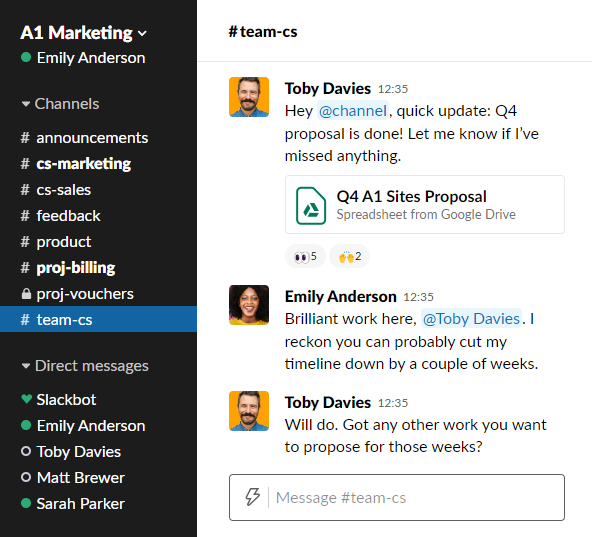
Consistent communication is key to a good agency-client relationship. Regular meetings provide a forum for both the agency and the client to discuss any concerns, updates, or changes.
Be Responsive
Your clients can get the answer to most of their marketing-related questions with a simple Google search. What they can't get as often is someone who is always available for updates, questions, or strategies.
Zac Spencer is the owner of Crave Media, a Search Engine Marketing agency based in Utah. He believes that the biggest tip for building good agency-client relationships is to be quick to respond to client queries.

I try to respond to emails in under an hour or return calls within 20 minutes.
Clearly Define Roles and Responsibilities
Develop a detailed project plan that outlines the specific responsibilities of each party. You can use visual aids, such as charts or diagrams, to provide a clear visual representation of the workflow.
A visual project plan helps avoid misunderstandings by providing a clear roadmap. When everyone understands their role, it minimizes confusion and fosters a more efficient collaboration.
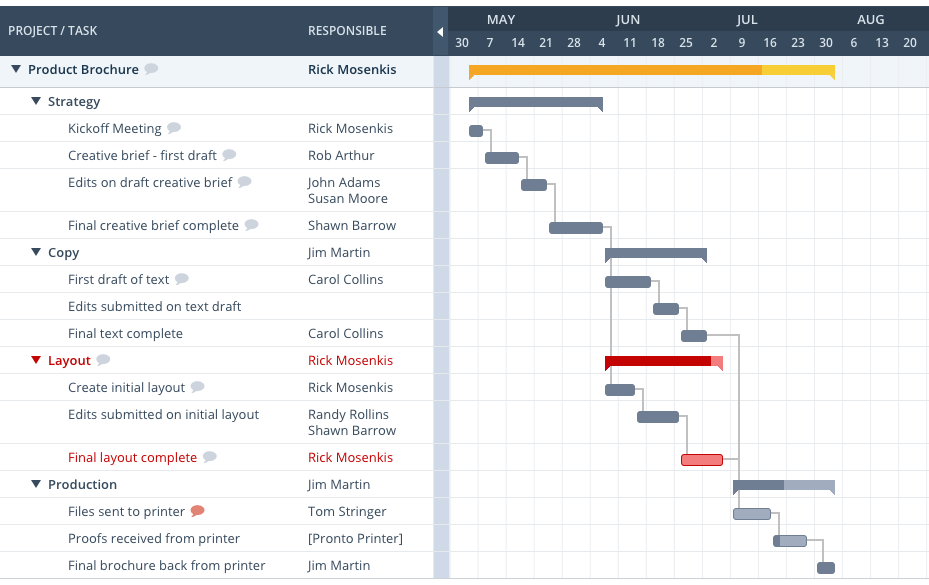
Regularly Realign Goals and Objectives
Schedule periodic strategy sessions to ensure ongoing alignment with the client's business goals. Discuss any changes in priorities and adjust the project plan accordingly.
Business landscapes evolve, and goals may shift. Regular strategy sessions allow both the agency and the client to reassess and realign their efforts, ensuring the project remains on track and relevant.
Establish Financial Transparency
Knowing the budget and financial constraints allows both parties to make informed decisions, minimizing surprises and potential disputes.
Hence, you should clearly outline the project budget, detailing costs for services, potential additional expenses, and payment schedules. Also, ensure to provide regular financial updates to maintain transparency.
Ensure Timely and Constructive Feedback
Implement a feedback system that includes regular performance reviews. Encourage specific and actionable feedback to guide improvements and celebrate successes.
Regular feedback ensures that both positive and constructive input is acknowledged. It provides a mechanism for continuous improvement and helps build a culture of collaboration and mutual support.
Develop a Contingency Plan
Establish a protocol for handling unexpected challenges. Develop a contingency plan and be ready to adapt the project plan as needed.
Having a predefined process for problem-solving and being flexible in adapting to changes demonstrates agility and resilience, crucial for the long-term success of the partnership.
Implementing these practical tips fosters a collaborative and positive agency-client relationship. Consistent effort in communication, transparency, and adaptability contribute to the overall success of collaborative projects.
Just remember that establishing a good relationship with clients will take time.

You will need to show that you are willing to take the time and make the effort for their success.
Jonathan Kelly, SEO manager at 1st on the List
Conclusion
A successful agency-client relationship is built on a foundation of trust, understanding, and shared objectives. By prioritizing these elements and consistently investing in effective communication and collaboration, agencies and clients can not only navigate challenges but also achieve long-term success in their joint endeavors.
The journey to success is a continuous one, marked by mutual respect, open dialogue, and a commitment to the shared goals that form the heart of a prosperous agency-client partnership.










